Switzerland urges probe into Gaza boat deaths
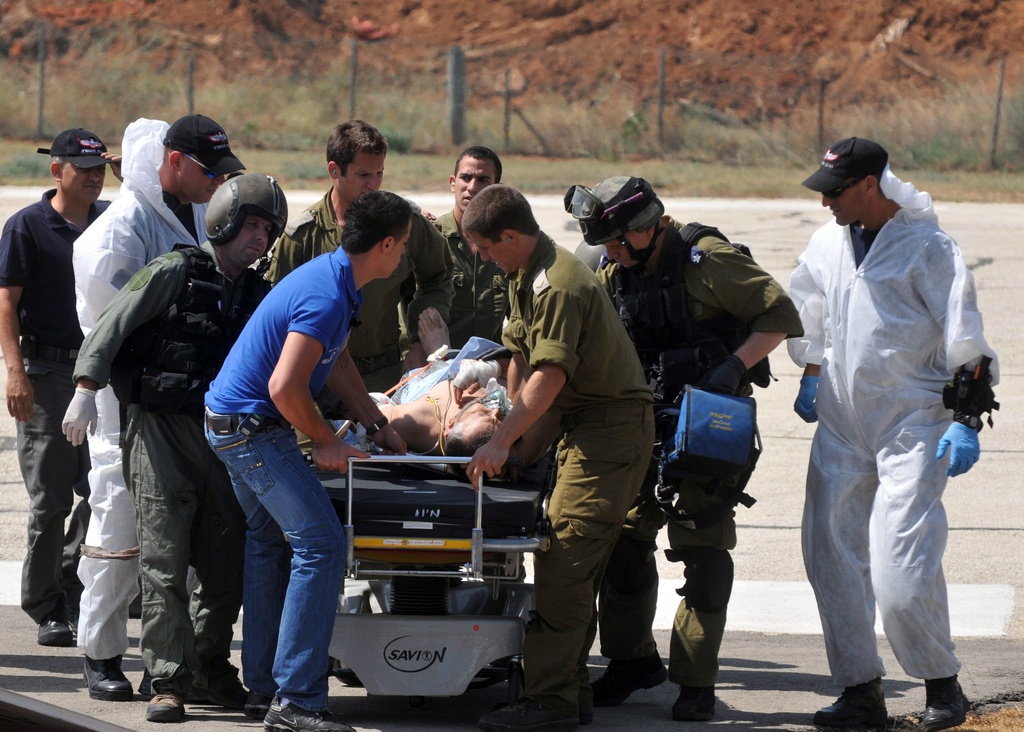
Switzerland has demanded an international inquiry into a deadly Israeli raid on six humanitarian ships attempting to run a Gaza blockade.
The Swiss foreign ministry expressed “very serious concern” over the incident in which at least nine people were killed.
“The foreign ministry deplores the death of several civilians as well as the injuries caused, including those suffered by the Israeli forces,” said a statement issued on Monday afternoon.
Switzerland has also “invited” Israel’s ambassador to Bern for a meeting to share its concerns.
The ministry added that Israel had an obligation to ensure the Palestinian population’s vital needs were met and that Switzerland felt a solution was needed to improve the way in which Gaza is rebuilt.
Early reports conflicted over exactly what took place during the raids, but Israeli military officials said nine activists were killed when soldiers stormed the ships 75 miles off the coast of Gaza. The military added that seven troops and 20 protesters were injured. Israeli media spoke of up to 19 dead and 36 wounded.
Israeli Defence Minister Ehud Barak expressed regret for the deaths but blamed the violence on organisers of the aid flotilla, calling it a “political provocation” by anti-Israel forces.
Israeli security officials said activists had been warned not to run a blockade imposed on Gaza or they would be forcibly stopped. Officials said Israeli soldiers were attacked and were forced to respond with live fire.
“Ships of hope”
The Swiss-Palestinian parliamentary group was also holding an emergency meeting on the situation on Monday. They were expected to urge Switzerland take a position on the issue and recall its ambassador to Israel.
Josef Zisyadis, from the parliamentary group, told swissinfo.ch the events were “catastrophic and scandalous”, and said the army had the means to stop the ships “without killing people”.
Zisyadis sailed to Gaza in 2008 on a ship organised by the Free Gaza movement that was behind the latest blockade run. He said more aid was needed in Gaza, and this particular flotilla was bringing materials for rebuilding schools and businesses, which was of “utmost importance” to Palestinians.
Carlo Sommaruga, another member of the Swiss-Palestinian parliamentary group, described the flotilla as “ships of hope” for the Palestinians.
“I went there last year just after the war and I saw the situation the population was in, the destruction,” he told swissinfo.ch. “The only aid that allows Palestinians to survive has to come through tunnels which are also bombarded by Israel. It is an unacceptable situation.”
He said that Switzerland needed to take a number of steps, including calling for the blockade to be lifted.
“Switzerland must halt all military collaboration with Israel. [Defence Minister] Ueli Maurer must cancel his visit to Israel which is scheduled for October,” he added.
He added that Switzerland needed to act quickly in its role as the key coordinator of the Geneva Convention governing the respect and enforcement of international humanitarian law in occupied territories.
But Theophil Pfister, head of the Swiss-Israeli parliamentary group, noted that Israel had “issued a very clear warning” before the raids. “The ship captains in the flotilla acted irresponsibly,” he said. “The pro-Palestinian activists must also assume the consequences for what happened.”
International reaction
Ygal Palmor, an Israeli foreign ministry spokesman, told Swiss radio on Monday: “The boats entered into an illegal zone. The Israeli army did what they could to stop them.”
He said the flotilla’s main organisers, the Turkish pro-Islamic aid group IHH, had said from the outset that their aim was to break the blockade. “We had everything to fear from these Islamists. Their intentions were more than suspicious.”
Palestinian President Mahmoud Abbas described the deaths as a “massacre”. The head of the Gaza Hamas government, Ismail Haniyeh, condemned the “brutal” Israeli attack and called for United Nations help to protect the safety of the activists who were on board these ships.
Spain, Greece, Denmark and Sweden have all summoned Israeli ambassadors in their countries. The reaction was immediately heated in Turkey, which had unofficially supported the aid mission. The Turkish foreign ministry said it was withdrawing its ambassador to Israel in response.
The European Union’s top diplomat, Catherine Ashton, called for a full inquiry into the circumstances surrounding the raid. The UN Secretary-General Ban Ki-moon said he was “shocked” by the events.
Radio warning
The flotilla included cargo and passenger ships with some 600 pro-Palestinians onboard, including 1976 Nobel Peace Prize laureate Mairead Corrigan Maguire of Northern Ireland, European legislators and Holocaust survivor Hedy Epstein, 85.
The boats were carrying items that Israel bars from reaching Gaza, such as cement and other building materials. The activists said they also were carrying electric-powered wheelchairs, prefabricated homes and water purifiers.
The ships set off from Cyprus on Sunday and were confronted by Israeli navy missile boats in the night. The missile boats issued a warning for the flotilla not to approach Gaza or “necessary measures” would be taken.
This is the ninth time that the Free Gaza movement, an international group of pro-Palestinian activists, has tried to ship in humanitarian aid to Gaza. Israel has let ships through five times, but has blocked them from entering Gaza waters since January 2009.
Jessica Dacey, swissinfo.ch and agencies
The Gaza Strip is a piece of land on the eastern Mediterranean coast about 41 kilometres long and 12 kilometres wide at its widest point, a total of 360 square kilometres.
It is bounded by Israel to the north and east, and Egypt in the south.
It has a population of about 1.5 million, giving it a population density of over 4,000 per square kilometre.
The bulk of the inhabitants are refugees or descendants of refugees.
In 1967 Israel occupied the territory and created 21 Jewish settlements there.
After the Oslo accords of 1993, the Palestinian Authority took over the administration.
Israel withdrew completely in 2005, but retained control of the border points.
In Palestinian legislative elections in 2006, Hamas won a clear victory.
After a struggle with the Fatah party of Palestinian president Mahmud Abbas, Hamas took control of the Gaza Strip in June 2007.
Israel has kept the territory under a tight blockade since June 2007.

In compliance with the JTI standards
More: SWI swissinfo.ch certified by the Journalism Trust Initiative

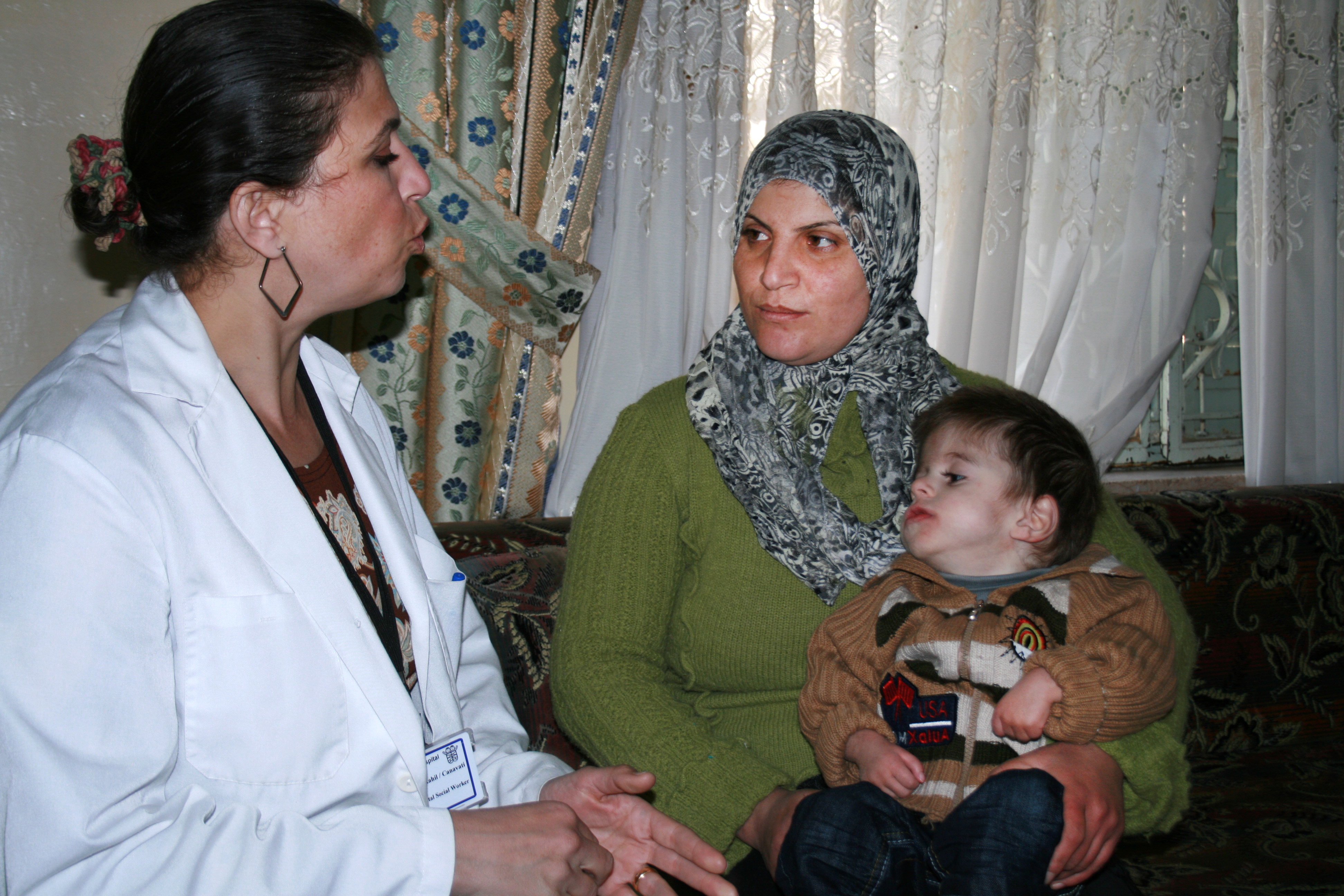
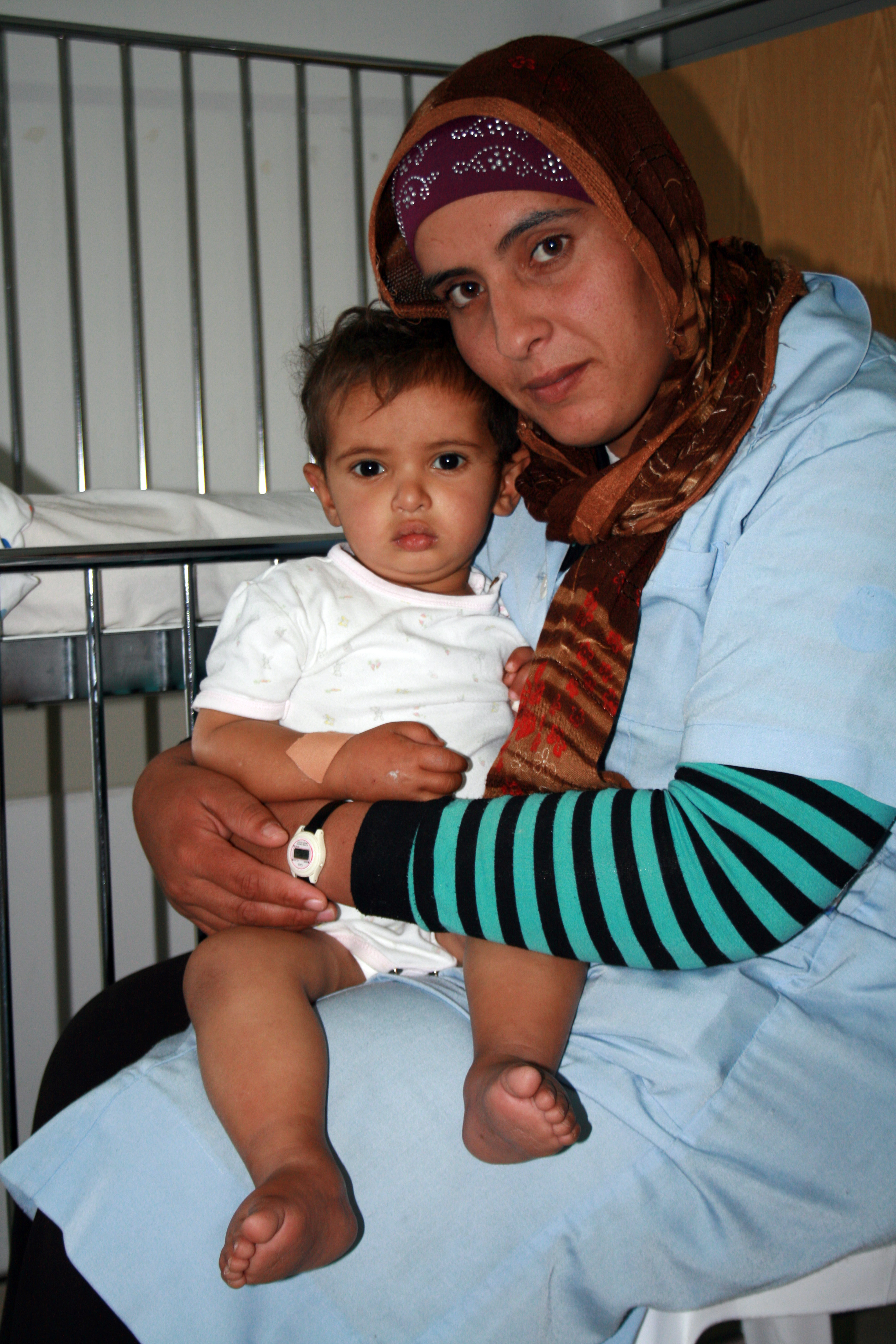
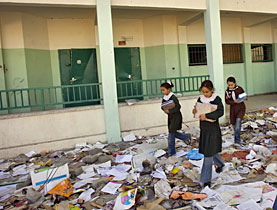
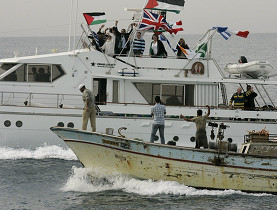
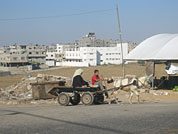
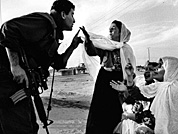
You can find an overview of ongoing debates with our journalists here. Please join us!
If you want to start a conversation about a topic raised in this article or want to report factual errors, email us at english@swissinfo.ch.